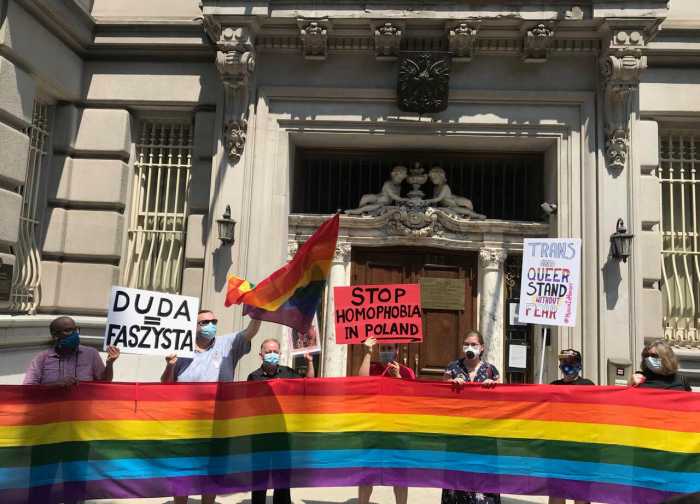Anti-trans bills imposing restrictions on trans minors in sports and healthcare are circulating in multiple US states.
Under HB112 or the “Save Women’s Sports Act,” transgender athletes in Montana would be excluded from sex-segregated sports — which means most school sports. Lawmakers are calling for trans athletes to compete on a team associated with their “biological sex.” On January 18, legislators in Montana also heard arguments for HB113, which bans gender-affirming care for trans youth.
In North Dakota, meanwhile, politicians are urging the state to pass HB1298, which would implement similar sex-based restrictions on trans athletes.
These bills are among several national efforts to prohibit trans, gender-non-conforming, non-binary, and intersex people from participating in public life.
During the bill’s legislative hearings in Montana, lawmakers backed up their discrimination with transphobic claims. The bill’s supporters falsely argue that trans women have physical advantages that propose unfair challenges to cisgender women and girls in sports.
Republican State Representative Barbara Ehardt said during a hearing on January 18 that “there will be no room, no place for women to compete” if the bill is not passed, according to KXLH.
She asked, “And at that point, I say to you, where shall we go, against whom shall we compete, and to whom shall we turn for redress?”
ACLU attorney Chase Strangio, who has played a crucial role defending LGBTQ rights in major court cases, noted in a Twitter thread that Ehardt repeatedly misgendered trans athlete June Eastwood, who became the first transgender athlete to compete in a Division I cross country race.
“There is absolute no threat to women’s sports by including women and girls who are transgender,” Strangio wrote via Twitter. “The proponents of this bill can point to all of four athletes all across the country who have had any success.”
Furthermore, Strangio writes that these efforts force women to adhere to stringent, sex-based stereotypes.
“Proponents of HB 112 are going to hurt all women and girls in the name of ‘saving’ them,” he wrote.
Separately, trans healthcare is taking heat.
Under HB 113, doctors could be fined between $500 to $50,000 for providing children with hormone blockers to treat gender dysphoria, or the chronic distress that comes from a mismatch between a person’s gender and sex assigned at birth. The bill also bans doctors from performing gender-affirming surgeries on children.
Scientific studies and experts denounce these claims. Last October, a study in Pediatrics found that gender-affirming care decreased mental health distress among trans youth. In a statement to the ACLU, Dr. Joshua D. Safer, the director of trans health at Mount Sinai, refuted claims that trans people have an athletic advantage.
“A person’s genetic make-up and internal and external reproductive anatomy are not useful indicators of athletic performance,” Safer said. “For a trans woman athlete who meets NCAA standards, there is no inherent reason why her physiological characteristics related to athletic performance should be treated differently from the physiological characteristics of a non-transgender woman.”
Last week, more than 150 local business leaders signed a letter to Montana’s House Judiciary Committee vowing against the anti-trans legislation.
“As business leaders in Montana, we value full inclusion of the LGBTQ community, and the rights LBGTQ people deserve as students, employees, patrons, and visitors in our great state,” leaders wrote. “HB 112 and HB 113, supported by anti-equality legislators, single out young members of our thriving communities simply for who they are and are deeply damaging to our state.”
To sign up for the Gay City News email newsletter, visit gaycitynews.com/newsletter.





































